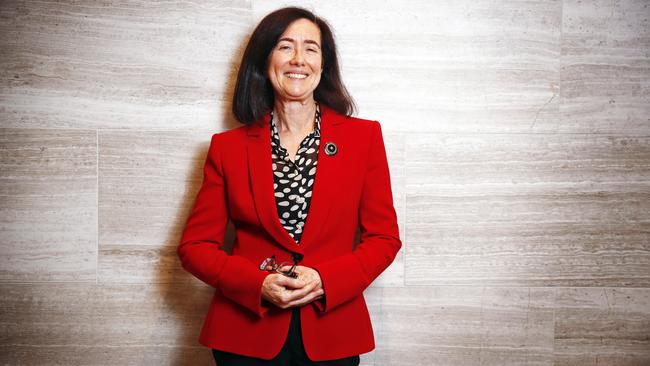ACCC hosts Big Tech talks as showdown looms
Australia’s competition and consumer watchdog has taken a step closer to potential measures that would rein in Big Tech.

Australia’s competition and consumer watchdog has taken a step closer to potential measures that would rein in Big Tech, hosting two industry round tables attended by Apple, Google, Meta, Amazon and others to thrash out competition issues and mooted changes to consumer law.
The two round tables, held virtually on June 1 and 7, tackled wide-ranging issues created by the size and market power of large digital platforms, including criticisms over their app store fees and a lack of overall competition.
It’s understood ACCC boss Gina Cass-Gottlieb chaired the meetings, which were attended by representatives from Apple, Google, Epic Games, Atlassian, Amazon, Yahoo, Tinder owner Match Group, Facebook parent Meta, Microsoft, Free TV, REA Group, the Business Council of Australia and News Corp, publisher of The Australian, among others.
Observers from Treasury, the Department of Communications and the Department of the Prime Minister and Cabinet also attended the meetings.
The ACCC is now considering submissions and is expected to make recommendations on possible law reform to the Albanese government in September, as its five-year digital platform services inquiry reaches its midpoint.
On the table are changes that would prohibit app marketplaces from blocking alternative app stores, and measures that would force app marketplaces to allow developers to provide users with information about alternative payment options.

Epic Games’ vice president and global head of public policy Coriell Wright said Apple and Google were harming developers and consumers in Australia and around the world by abusing their dominant market position. Epic is embroiled in an Australian court action with both Apple and Google over their perceived app store dominance, but those cases are not expected to be heard by the Federal Court potentially for years.
“Amending the Competition and Consumer Act and opening up app stores to competition would directly benefit Australian consumers and developers,” Ms Wright said.
“Epic Games is calling for clear and effective rules that stop anti-competitive app marketplace behaviours in Australia, and alleviate the harms experienced by consumers and developers.
“We are committed to continuing to engage with Australian policy makers and regulators to create a free, fair and open mobile app ecosystem.”
Rick VanMeter, executive director at the Coalition for App Fairness, said Australia was playing a leading role in making a more level playing field globally for app developers.
“The ACCC investigation is critical to the global effort to create a fair and more competitive app marketplace. As more governments continue to put Big Tech on notice, we look forward to the ACCC’s report and guidance on implementing meaningful change to the app ecosystem,” he said.

App developer Proton said the ACCC had already shown through interim reports that the digital economy lacked meaningful competition and user choice.
“It’s no exaggeration to say the world is on the cusp of reining in Big Tech’s power once and for all, and that’s partly thanks to efforts in Australia,” Proton spokesman Matt Fossen said. “The ACCC’s final report will offer a unique opportunity to take the next step and usher in meaningful change.”
A Google spokesman said: “We recognise that the success of digital platforms has given rise to debate about how well competition law works in digital markets and understand the importance of protecting consumers online.
“Given the high-degree of dynamism in digital markets, and the benefits they bring Australians in their daily lives, it’s critical that any proposed regulation supports Australia’s progress to becoming a leading digital economy and does not stifle innovation or deter investment in its tech industry.”
Apple declined to comment but the company’s submission said the tech giant was “puzzled that the competition and consumer protection agency would prioritise purported competition concerns which lack cogent evidence of harm, over clear and present severe damage to users that they experience every day”.



To join the conversation, please log in. Don't have an account? Register
Join the conversation, you are commenting as Logout